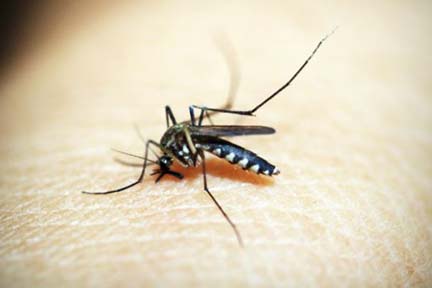|
Press Release
FOR IMMEDIATE RELEASE: June 27, 2021
CONTACT: Lynn Sutfin, 517-241-2112, SutfinL1@michigan.gov
MDHHS provides tips to stay healthy and safe during flood events
LANSING, Mich. – Following the issue of a state of emergency in Wayne County by Gov. Gretchen Whitmer in response to flooding and flood warnings, the Michigan Department of Health and Human Services (MDHHS) is providing guidance to Michiganders on how to stay safe and healthy during flood events.
“Flood-affected residents are encouraged to monitor health and safety alerts issued by their local media and local health departments as flooding can create dangerous conditions,” said Dr. Joneigh Khaldun, chief medical executive and chief deputy for health at MDHHS. “Floodwater and standing waters can be dangerous and can make you vulnerable to infectious diseases, chemical hazards and other injuries. MDHHS is providing guidance to help keep Michiganders healthy during flood events.”
If flooding occurs in your area, MDHHS recommends the following actions to protect you and your family:
During floods
- Stay out of flood waters. Flood water moves faster than it appears and can carry debris, which might injure you. Additionally, there is a danger of electrical shock from downed and exposed power lines. Children should never play around high water, storm drains, viaducts or arroyos.
- Avoid driving in flood water as vehicles can easily be swept away. If you are stranded and surrounded by flood waters, wait for rescue personnel rather than attempting to walk or drive through flood waters.
- Flood water can be dangerous to your health. According to the Centers for Disease Control and Prevention (CDC), flood water can contain dangerous bacteria and other pollutants, including raw sewage. Flooding can lead to contaminated ground water, drinking water and carry sewage from sewers or septic systems into yards and basements.
- If flooding does occur in your area, avoid contact with flooded areas and wash up if contact does occur. Listen to public announcements or contact your local health department to find out if your tap water is safe to use.
- MDHHS encourages Michiganders who get their drinking water from wells to get their well water tested following a flood event. More information is available in this document or by calling the MDHHS Drinking Water Hotline at 844-934-1315.
After floodwaters recede
- Use caution when reentering a home or building that has been flooded. If you can, return to your home during the day so you do not have to use any lights. Use battery-powered flashlights and lanterns, rather than candles, gas lanterns or torches. Do not turn power on or off or use an electric tool or appliance while standing in water. If you smell gas or suspect a leak, leave the area immediately and notify the gas company or the police or fire departments. Do not return until you are told it is safe to do so.
- If your home has been flooded and has been closed up for several days, CDC cleaning recommendations include washing and sanitizing flooded areas of the home. MDHHS provides recommendations to clean-up visible mold.
- Take steps to protect yourself and your loved ones during cleanup after a flood. When preparing to clean up after flood, make sure you have the right safety gear including hard hats, goggles, N95 masks, waterproof and steel toe boots, earplugs if working with noisy equipment and rubber boots and gloves if sewage contamination is suspected or when using cleaning products such as bleach. While cleaning, work in teams in case you need to move heavy objects, rest as needed and drink water.
- Never use generators, pressure washers or other gasoline, propane, natural gas or charcoal-burning devices inside your home, basement, garage or even outside near an open window, door or vent. Carbon monoxide is an odorless, colorless gas from these sources that can cause sudden illness and death.
- If you have any open cuts or sores that were exposed to floodwater, CDC wound care includes washing the wound with soap and water and applying an antibiotic ointment to prevent an infection. Seek immediate medical attention if you become injured or sick.
- Be aware of your surroundings. Avoid electrical lines, debris, insects and wild or stray animals.
- Throw away food that may have come in contact with flood or storm water; perishable foods that have not been refrigerated properly due to power outages; and food with an unusual odor, color or texture. Unsafe food can make you sick even if it looks, smells and tastes normal. When in doubt, throw it out.
- Mosquitoes, which can carry West Nile Virus and other mosquito-borne diseases, breed in standing water. Flood waters can increase the population of mosquitoes and raises the risk for being infected. Regular use of EPA-approved mosquito repellents while outdoors can protect you from mosquitos.
- Take care of your emotional health. During and after a disaster, it is natural to experience different and strong emotions. Coping with these feelings and getting help when you need it will help you, your family and your community recover from a disaster. Individuals in crisis, including those considering suicide, are urged to contact the Disaster Distress Helpline 24/7 at 800-985-5990 or the National Suicide Prevention Lifeline 24/7 at 800-273-8255.
For more information, contact MDHHS at 800-648-6942 or your local health department. |







